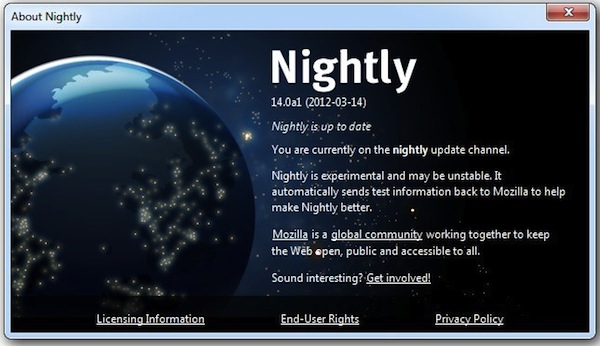
Chrome for Android beta adds key features, broadens global availability
Last February, Google launched the first version of its Chrome Web browser for Android 4.0, undoubtedly one of the most significant applications that could be released for Android. While it was received with great fanfare, I said it was still far too early to call it a real winner due to a few missing features.
Tuesday, Google issued a major update to the young browser that added a few of those features, significantly advancing Chrome for Android against its competition.

Chrome 19 beta syncs tabs everywhere -- get it now!
Most of us now use at least two devices to connect to the Internet and while this freedom of connectivity is great in many respects, there are also problems associated with it. One of the most infuriating aspects of moving from browsing the web on one computer to using another device is that you will lose the web sites you were looking at. This is something that is addressed in the latest beta version of Google Chrome 19, which features the synchronization of tabs between devices. The feature extends to other devices a capability available with Chrome for Android Beta.
If you are working on your computer at work and then head home, there is no longer any need to send yourself an email with links to the websites you have been looking at during the day. Instead, assuming that you have the beta version of Google web browser installed on both machines and you are signed into your account, when you get home you need look no further than the ‘Other devices’ menu on the new tab page.

Microsoft all but buys Netscape with AOL patent acqusition
It's truly the final curtain call for Netscape. A portion the company's technologies are part of a massive $1 billion patent sale between AOL and Microsoft, announced Monday morning. Microsoft was the top bidder in an auction to sell off non-essential technologies that include about 800 patents.
Microsoft is also acquiring a subsidiary of AOL. While AOL did not specify the subsidiary by name, sources tell All Things Digital that it is Netscape. AOL still retains the right to the brand and related businesses, but all the technologies behind it are now owned by the Redmond, Wash. company.

Internet Explorer is a winner
Microsoft competes the old-fashion way with its web browser -- innovation and marketing -- and that's a fairly recent trend. There are reasons companies advertise their products. Promotion raises awareness and, ideally, product adoption. Finally, after years of steady decline, Internet Explorer has sustained growth, at least for five months -- that's a quantifiable trend. In fact, IE was the only major browser to increase usage share in March. Additionally, Microsoft finally sees payback from its risky strategy of not making IE9 Windows XP compatible.
Net Applications releases new data the first of every month, but I waited a day to make absolutely sure this statement was no April Fools prank: "With a gain of .99 percent last month and a net gain of 1.2 percent global usage share over the last five months, Internet Explorer has stabilized and even reversed its usage share declines of the last few years".

37 downloads you shouldn't miss this week
Another week -- month, actually --- is behind us and a huge number of software releases to keep track of. If you feel like you may have missed out on some of the biggest releases, this roundup is here to get you back up to speed.
iolo System Mechanic Free 10.8.3.51 is a great free tool for optimizing your system, but if you’re more concerned about protecting your privacy by securely deleting files, take a look at Disk Wipe 1.5. Auslogics Disk Defrag 3.4.1.0 is a free utility to replace Windows’ defragmentation tool which now offers better stability and performance. There’s also a Pro version of the program available –Auslogics Disk Defrag Pro 4.0.1.50. Infamous system cleaner CCleaner 3.17.1689 and CCleaner Portable 3.17.1689 feature improved cookie options, better support for Chrome and a host of other fixes and enhancements.

Opera Mini 7 launches for Android
Opera Software on Wednesday released the latest version of its compact Opera Mini browser for Android devices, which was heretofore available only as an Opera Next advance build.
Opera Mini 7 for Android features improved hardware acceleration for faster and smoother performance, and features the ability to set up the homescreen with an unlimited number of Speed Dial buttons.

Chrome 18 arrives, with GPU acceleration -- get it now!
Google Chrome 18 has just landed as a stable release, and while it has the usual mix of minor tweaks and security fixes, the real news is its graphics improvements.
Part of this comes from the browser enabling GPU-accelerated rendering for 2D Canvas content, which could bring a real performance boost to canvas-based animations and games. (Or that’s the plan, anyway. If you have any issues, or just want to find out what’s happening on your system, then entering chrome://gpu will give you more information on the browser’s current GPU acceleration usage.)

Google, there's no good 'without doing evil'
When will someone stand up to the bully in the room? He roves around in intimidating manner boasting how kind he is. Hey, he can make friends without being evil. But bully is anything but good. That's how I feel about Google this fine Spring day.
Yesterday, "Google Play", the renamed Android Market, popped up on the black bar adorning my Google search page, with a beaconing red -- or is it orange -- "New". The service is now front and center with other Google services hawked from search, spotlighting an ongoing trend of aggressive integration that has rapidly accelerated under Larry Page's leadership. Microsoft spent nearly a decade under house arrest for doing less.

Yell 'Wahoo' and download 64-bit Opera 12 alpha right now!
The development of Opera continues apace and for anyone wanting to try out the very latest features of the browser, there's a new version to install. The latest build of Wahoo (the codename for Opera 12) is available for the first time as a 64-bit release for both Mac and Windows users and the latest snaps shot also features improved support for HTML 5 and CSS3. As with previous builds of Opera 12, it is possible to install this alongside your current stable version of the browser so you can try it out while maintaining the version you have become used to.
Opera changed the way plugins are handled, to make the move to 64-bits. Plugins now run in a separate process to the browser itself, known as OOPP or Out of Process Plugins, which also not only help to improve overall stability, but the security of Opera as well.

23 downloads you shouldn't miss this week
Another busy week of software releases is behind us and, in case you managed to miss some of them, we’ve collected some of the most-compelling titles together into this week’s roundup.
If you spend time installing a lot of the programs we highlight here, you’re going to need a suitable launcher to help you manage them. Winstep Nexus 12.20 is a stylish dock for Windows that provides easy access to all of your apps. The software is perfectly complimented by Winstep Xtreme 12.20, which enables you to completely customize the appearance of your desktop with skins and widgets that can be as adventurous as you like.

Need for speed, but Firefox is too slow? Try Pale Moon 11
Firefox 11 delivered some useful features, including add-on synchronization, extended developer tools and the ability to import some Chrome profile data.
It wasn’t so hot on performance enhancements, though, beyond support for Google’s SPDY protocol (and that’s not yet widely used enough to make a big difference for most people). So if you value speed above all else, then you may want to check out Pale Moon 11, released today: it’s based on the same source code as Firefox 11, so looks and feels very similar, but is further optimized to deliver the very best performance.

Get the luck of the Irish with one of this week's 32 downloads
Apple's iPad dominated news about hardware this week, but there was still plenty else going on in the software world.
If you’re running Windows but like the idea of trying out different operating systems, or just installing a different version of Windows without the need for dual booting, VirtualBox 4.1.10 (build 76836) may be what you’re looking for. When you’re running virtual system in this way you can use VirtualBox Extension Pack 4.1.10 to add extra features such as better USB performance and networking booting.

Which Firefox should you choose -- 11, 12, 13 or 14?
As part of Mozilla’s rapid-release cycle program for its open-source, cross-platform browser, the recent release of Firefox 11 FINAL has now been followed by updates for its various developmental branches, namely Firefox 12 Beta, Firefox 13 Aurora, Firefox 14 Nightly and Firefox 14 UX.
Versions 11 and 12 feature little to excite the Firefox user base, but look further ahead and you’ll see some interesting new developments on the horizon. Read on to discover more about what’s happening with Firefox and to pick the perfect build for you.

Got Windows 64-bit and want the latest Firefox? Try Waterfox 11 instead
Hot on the heels of the slightly delayed official unveiling of Firefox 11 FINAL comes Waterfox 11.0, an optimized build of the Firefox source code for Windows 64-bit users.
Waterfox 11.0 contains exactly the same updates as Firefox 11 (see below), plus one major change of its own, a switch from AMD’s Core Math Library (ACML) to the AMD LibM library, which is optimized for 64-bit processors.

Apple releases Safari 5.1.4 -- get it NOW!
For Apple, the past week was about post-PC devices and apps; now comes Mac software. Today Safari 5.1.4 released, and despite the very small x.x.1 version number increase, there is a massive improvement in JavaScript performance to look forward to, as well as the usual plethora of bug fixes and general tweaks.
Any claims about performance increases for software are usually open to interpretation and individual user experiences will differ from one machine to another. However, Apple claims that users running a reasonably specified system should be able to reap the benefits of up to an 11 percent improvement in JavaScript performance. This can do a lot to improve the responsiveness of websites, but there are also a number of other improvements included in the browser.
